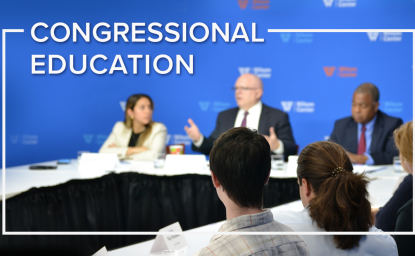The leadership capacity-building effort we at the Africa Program have been engaged in for nearly seven years in Burundi, the Democratic Republic of the Congo, and Liberia, has been the most fulfilling experience of my life. My work in Africa spans nearly four decades, working on such momentous issues as the negotiations to end white minority rule in Rhodesia that resulted in the state of Zimbabwe; the same type of transition that brought Southwest Africa into modern-day Namibia; the ending of Portuguese rule in Angola, Mozambique, Guinea-Bissau and Cape Verde; and the democratic transition in South Africa. Democracy building, human resource development, and fair governance have been at the heart of my work.
I prefer to label the Wilson Center's work in this region "conflict transformation" rather than conflict resolution. Simply put, it deals with transforming human beings, the protagonists to a conflict, who open up their thinking about their opponents and become invested in the common interest of making their societies work. This is an incredibly difficult endeavor, although every workshop has witnessed moving individual transformations.
During the first workshop we held for military protagonists prior to the ceasefire in Burundi, we brought together the field commanders of all the armed resistance groups (Hutu) and the National Army (Tutsi) to address pending problems of creating an integrated national army. The mood was exceedingly tense. Participants were quite suspicious and paranoid. Breaking down the barriers seemed a formidable challenge.
On the final of six days, the military officers still seemed tense. That night, the training team decided some singing might loosen up the group. An old folk singer myself, I took the lead in singing a legendary war protest song, which I only knew in English, called, "Where Have All the Flowers Gone?" To our surprise, the whole assembly of French-speaking officers knew the words in English and joined us in full voice. Then they followed with a string of their own songs. Then one rebel sang a beautiful Kirundi tune, which had the men in tears. It was, we were told, about a man leaving his family to go to war.
And so it continued well into the night. These men, who days earlier were aligned against each other in battle, that night sang and danced together, shared beers, and longed for home. We knew we were making a difference.
Related Links


